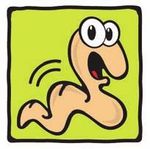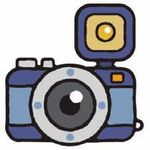Lion Dancer A RIF GUIDE FOR COMMUNITY COORDINATORS
←
→
Page content transcription
If your browser does not render page correctly, please read the page content below
Lion Dancer
A RIF GUIDE FOR COMMUNITY COORDINATORS
Themes: Family, Chinese-American Culture, Authors:
Celebrations, Traditions Kate Waters
Grade Level: Pre-K to 2nd grade and Madeline
Slovenz-Low
Book Brief: Ernie Wan prepares to celebrate the
Chinese New Year. Photographer: Martha Cooper
TIME TO READ!
Before reading: Allow kids to look at the cover and some of the photographs.
Explain that different cultures celebrate the new year on different days. Do any of the
children celebrate New Year’s on a day other than (or in addition to) January 1?
RELATED ACTIVITIES
EIGHT IS ENOUGH! (AGES 6-12) PAINTING FIREWORKS
The Chinese character for 8 looks and sounds like (AGES 4-9)
another Chinese word that means “rich.” Make a list Materials: black
of 8 ways you can be rich. For example, having good paper, paint, stick or
friends makes you “rich.” paint brush, straw,
glitter (optional)
ABC RACE Firecrackers and
(AGES 6-12) fireworks are an
Materials: cards with the names of the Chinese important part of
Zodiac animals (for more than 12 children, make Chinese New Year
extra copies) celebrations. Give
each child a piece of
Kids draw a card from the black paper. Drip
pile. On your signal, they small drops of brightly
race to put themselves in colored paint on each
alphabetical order. Time paper. Blow paint drops with a straw to make
the race to see if they can fireworks shapes. Before the paint is dry, have
improve their speed. For students sprinkle glitter on the paint. Did you know
a large group, divide the that fireworks were invented in China?
children into teams.
ADDITIONAL RESOURCES
OTHER BOOKS ABOUT CHINESE NEW YEAR
The Dancing Dragon, Marcia Vaughan (1996), Lanterns and Firecrackers,
Jonny Zucker (2003), Hiss! Pop! Boom!, Tricia Morrissey (2006).
TECHNOLOGY LINK FOR KIDS
www.rif.org/kidsLion Dancer
A RIF GUIDE FOR EDUCATORS
Themes: Family, Chinese-American Culture, Authors:
Celebrations, Traditions Kate Waters
Grade Level: Pre-K to 2nd grade and Madeline
Slovenz-Low
Book Brief: Ernie Wan prepares to celebrate the
Chinese New Year. Photographer: Martha Cooper
Content Connections: Social Studies, Math
TIME TO READ!
BEFORE WE READ, Prior Knowledge: Ask if any students celebrate New
LET’S LOOK AT... Year’s with their families. What are some of the things
that their families usually do? Do any eat special food
The Cover: Look at the on New Year’s Day? Explain that different cultures
cover carefully. What do celebrate the new year at different times. Does
you notice? What are the anyone in the class celebrate the new year on a day
children doing? What kind other than (or in addition to) January 1?
of writing is on the wall in
the background? What is a Vocabulary: apartment, celebrations, kung fu, martial,
“lion dancer”? recognize, envelopes, uniforms
The Pictures: Flip through a few of the pages in the Purpose for Reading: Students can practice asking
book. Why do you think this book uses photographs questions. “As we read the story, think of a question
instead of drawings? What do the pictures tell you you would like to ask the authors. What would you
about the boy and his family? ask the children in the book?”
WHILE WE READ
MONITORING COMPREHENSION N Why do Ernie and Jenny
N Name some of the ways that Ernie practiced for
have to get up at 11 PM?
What special event
the new year celebration.
happens?
N Why is the Lion Dance important?
N Why is Ernie so tired at
N What are some of the traditional foods Ernie and the end of the book?
his family eat?
LET’S THINK ABOUT
Our Purpose: Revisit the purpose: “What question would you like to ask the authors?” “Do you have questions
for Ernie or Jenny?”
Extending Our Thinking: Ask these open-ended questions: “Why is it important for Ernie to learn to read and
write Chinese?” “Why does Ernie stay back when the Buddha leads the big lions close to the
firecrackers?” (This is an opportunity to talk about firecracker safety.)
NOTE TO EDUCATORS
N Extension Activities for Educators also available.
N Vocabulary Scaffolding Sheet also available.Lion Dancer
A RIF GUIDE FOR PARENTS AND FAMILIES
Themes: Family, Chinese-American Culture, Authors:
Celebrations, Traditions Kate Waters
Grade Level: Pre-K to 2nd grade and Madeline
Slovenz-Low
Book Brief: Ernie Wan prepares to celebrate the
Chinese New Year. Photographer: Martha Cooper
TIME TO READ!
Before reading, make After reading, ask questions:
predictions: Guess what the N What does Ernie have to practice?
N Why does he go to school on Saturdays?
book is about based on the
pictures. What tells you that
this story is about a real N What are some traditional foods his family eats
family? for New Year’s?
N What are some of the other traditions mentioned
While reading, pay attention to the order: Notice
in the book?
how many things Ernie has to practice before the
actual parade.
RELATED ACTIVITIES
SUNNY CITRUS SALAD GOOD WISHES
Oranges and tangerines are used for decoration Materials: red paper,
at the Chinese New Year. They are a symbol of markers, tape
happiness. In China, red is
Spread some joy by cutting up oranges and considered lucky.
tangerines and making a citrus salad. You can add Cut red paper into
other fruits if you like. small pieces. On
each piece of paper,
OUT AND ABOUT write a good wish
for another family
Next time your family takes a member. Decorate
trip or celebrates a holiday, take your wishes with
pictures. Print them and put pictures or stickers
them in order to tell a story and hang them on
about your family. You can also your windows and
make scrapbooks or photo albums for doors. Hopefully, they’ll bring your family good luck!
free online at websites like www.smilebox.com.
ADDITIONAL RESOURCES
OTHER BOOKS ABOUT CHINESE NEW YEAR
The Dancing Dragon, Marcia Vaughan (1996),
Lanterns and Firecrackers, Jonny Zucker (2003),
Hiss! Pop! Boom!, Tricia Morrissey (2006).Lion Dancer
A RIF VOCABULARY SCAFFOLD
perform: to put
on a show
blink: to open
wiggle: and close
to move back your eyes
and forth
bow: to bend
feast: a lot
down or nod your
of food
head to show
respect
uniform: special
clothes you
gobble: to eat wear to show
very quickly you are part of
a group
mixture:
dab: to put a a bunch of
little on, paint things put
with a little bit together
race: to go
fast, hurryLion Dancer
RIF EXTENSION ACTIVITIES FOR EDUCATORS
WRITING ACTIVITIES MATH
ACTIVITIES
EIGHT IS GREAT!
The Chinese character for 8 looks and sounds DOORS AND WINDOWS
like another Chinese word that means “rich.” One Chinese New Year custom is to open all
Make a list of 8 ways that you can be rich. For the doors and windows at midnight to let the
example, having good friends is one way to old year out and the new year in. How many
be rich. doors and windows are in our classroom? If
every classroom in our grade level has the same
number, what would the total number of doors
and windows be? What would the total be for
each of the grade levels in our school? How
many would that make for the whole school?
WEAR RED FOR LUCK
In China, red is considered a lucky color. Look
around your classroom. Count the number of
people wearing red tops. What other color tops
do you see? Count the number of tops in each
color and make a graph to show your findings.
Make sure your graph has a title and labels.
Most Popular Top Color
5
4
ORANGE YOU GLAD? 3
Oranges are Chinese symbols for abundant
2
happiness. In English, oranges are the only fruit 1
that have the same name as their color. Tell or 0
write a story about what would happen if all Brown Green Yellow BLue Red
fruits were called by their color names. Tell your
story in words and pictures. Include different
kinds of fruit and what they would all be called. RED ENVELOPES
During the Chinese New Year, it is traditional to
give each child red envelopes with money in
them. Your father has $10. If he wants to give
each child in your family $3, will
he have enough money? Explain
your answer.You can also read
























































